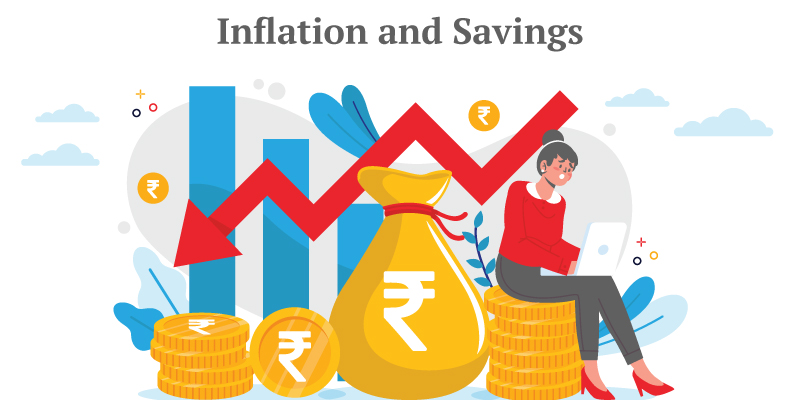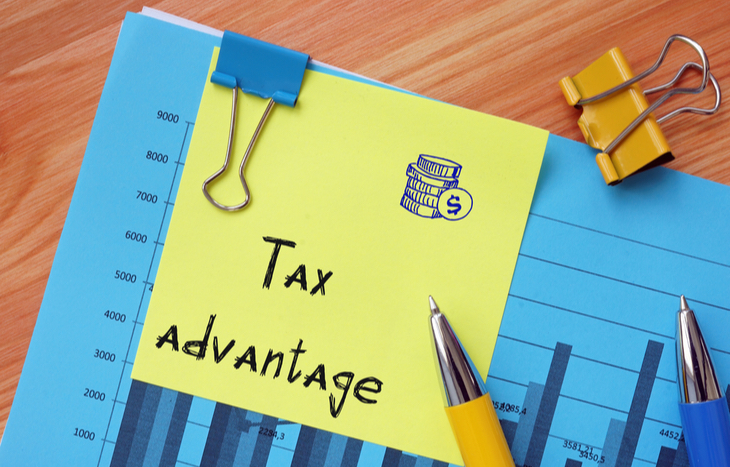-
Table of Contents
“The silent thief: How inflation erodes your savings and investments.”
Inflation refers to the general increase in prices of goods and services over time, resulting in the decrease in the purchasing power of money. This phenomenon has a significant impact on savings and investments. In this article, we will explore the effects of inflation on both savings and investments, highlighting the challenges it poses and potential strategies to mitigate its negative consequences.
Understanding the Effects of Inflation on Long-Term Investments
Inflation is a term that is often thrown around in economic discussions, but what does it really mean for your savings and investments? Understanding the effects of inflation on long-term investments is crucial for anyone looking to grow their wealth over time.
Inflation refers to the general increase in prices of goods and services over time. When inflation occurs, the purchasing power of money decreases, meaning that the same amount of money can buy fewer goods and services. This can have a significant impact on your savings and investments, especially over the long term.
One of the main effects of inflation on long-term investments is the erosion of purchasing power. Let’s say you have $10,000 saved up in a bank account earning a 1% interest rate. If the inflation rate is 2%, your purchasing power will actually decrease over time. This is because the interest earned on your savings is not keeping up with the rate of inflation. In other words, your money is not growing fast enough to offset the increase in prices.
To combat the effects of inflation on long-term investments, it is important to consider investments that have the potential to outpace inflation. One such investment is the stock market. Historically, stocks have provided higher returns than inflation over the long term. By investing in a diversified portfolio of stocks, you have the potential to grow your wealth and maintain your purchasing power.
Another investment option to consider is real estate. Real estate has been a popular choice for long-term investors looking to hedge against inflation. As property values tend to increase over time, real estate investments can provide a hedge against inflation and potentially generate a steady stream of rental income.
In addition to stocks and real estate, investing in commodities such as gold and silver can also be a way to protect your savings from the effects of inflation. These precious metals have historically been seen as a store of value during times of economic uncertainty. By diversifying your investment portfolio to include commodities, you can potentially offset the effects of inflation on your savings.
It is also important to consider the impact of inflation on fixed-income investments such as bonds. When inflation rises, the purchasing power of the fixed interest payments from bonds decreases. This means that the real return on your investment may be lower than expected. To mitigate this risk, it is important to consider investing in inflation-protected securities such as Treasury Inflation-Protected Securities (TIPS). These bonds are designed to provide a return that keeps pace with inflation, helping to preserve your purchasing power.
In conclusion, understanding the effects of inflation on long-term investments is crucial for anyone looking to grow their wealth over time. Inflation erodes the purchasing power of money, making it important to consider investments that have the potential to outpace inflation. Stocks, real estate, commodities, and inflation-protected securities are all options to consider when building a diversified investment portfolio. By taking these factors into account, you can protect your savings and investments from the impact of inflation and potentially grow your wealth over the long term.
Strategies to Protect Your Savings from Inflation
Inflation is a term that is often thrown around in economic discussions, but what does it really mean for your savings and investments? In simple terms, inflation refers to the increase in the prices of goods and services over time. While a moderate level of inflation is generally considered healthy for an economy, it can have a significant impact on your savings and investments if left unchecked.
One of the most obvious ways that inflation affects your savings is by eroding its purchasing power. Let’s say you have $10,000 in a savings account earning a modest interest rate of 2%. If the inflation rate is 3%, the real value of your savings is actually decreasing by 1% each year. This means that over time, you will be able to buy less with the same amount of money.
Similarly, inflation can also eat into the returns on your investments. If you have invested in stocks or bonds that are not keeping pace with inflation, the real value of your investment will be eroded. This is particularly true for fixed-income investments such as bonds, where the interest rate may not be able to keep up with rising prices.
So, what can you do to protect your savings and investments from the impact of inflation? One strategy is to diversify your portfolio. By spreading your investments across different asset classes such as stocks, bonds, and real estate, you can reduce the risk of inflation negatively affecting your overall portfolio. This is because different asset classes tend to perform differently in different economic conditions, and having a mix of investments can help offset any losses caused by inflation.
Another strategy is to invest in assets that tend to perform well during inflationary periods. For example, commodities such as gold and silver have historically been seen as a hedge against inflation. This is because their value tends to rise when the purchasing power of fiat currencies decreases. Real estate is another asset class that can provide a hedge against inflation, as property prices tend to rise along with inflation.
In addition to diversifying your portfolio and investing in inflation-resistant assets, it is also important to regularly review and adjust your investments. This means keeping an eye on the inflation rate and making any necessary changes to your portfolio to ensure that it remains aligned with your financial goals. For example, if inflation is expected to rise, you may want to consider increasing your exposure to inflation-resistant assets.
Finally, it is worth considering investing in assets that generate income. This could include dividend-paying stocks or rental properties. By generating a regular income stream, these assets can help offset the impact of inflation on your savings and investments.
In conclusion, inflation can have a significant impact on your savings and investments. It erodes the purchasing power of your savings and can eat into the returns on your investments. However, by diversifying your portfolio, investing in inflation-resistant assets, regularly reviewing and adjusting your investments, and considering income-generating assets, you can protect your savings from the impact of inflation. Remember, it is important to consult with a financial advisor to determine the best strategies for your individual circumstances.
The Role of Inflation in Shaping Investment Decisions
Inflation is a term that is often thrown around in economic discussions, but what exactly does it mean and how does it impact our savings and investments? In simple terms, inflation refers to the increase in the prices of goods and services over time. While a moderate level of inflation is considered healthy for an economy, it can have a significant impact on our financial decisions, particularly when it comes to saving and investing.
One of the key ways in which inflation affects our savings and investments is by eroding the purchasing power of our money. Let’s say you have $1000 in a savings account earning a 1% interest rate. If the inflation rate is 2%, the real value of your savings is actually decreasing by 1% each year. This means that over time, your money will be able to buy fewer goods and services than it could before. Inflation essentially eats away at the value of our savings, making it important to consider its impact when making financial decisions.
The impact of inflation on investments is also significant. Inflation can affect the returns on various investment vehicles, such as stocks, bonds, and real estate. For example, if you invest in a bond that offers a fixed interest rate of 3%, but the inflation rate is 4%, the real return on your investment is actually negative. This means that even though you are earning interest, the purchasing power of your investment is decreasing. Inflation can also impact the value of stocks and real estate, as rising prices can lead to higher costs for companies and homeowners.
Given the impact of inflation on savings and investments, it is important to consider strategies to mitigate its effects. One common approach is to invest in assets that have historically outpaced inflation, such as stocks or real estate. These assets have the potential to provide higher returns that can help offset the impact of inflation. However, it is important to note that these investments also come with higher risks, so it is crucial to carefully assess your risk tolerance and investment goals before making any decisions.
Another strategy to combat inflation is to diversify your investments. By spreading your money across different asset classes, such as stocks, bonds, and commodities, you can reduce the risk of being heavily impacted by inflation in any one area. Diversification allows you to take advantage of the potential growth in different sectors while minimizing the impact of inflation on your overall portfolio.
Additionally, it is important to regularly review and adjust your investment strategy to account for changes in inflation. As inflation rates fluctuate over time, it is crucial to reassess your investments and make any necessary adjustments to ensure that your portfolio remains aligned with your financial goals. This may involve rebalancing your portfolio, reallocating assets, or considering alternative investment options.
In conclusion, inflation plays a significant role in shaping our investment decisions and can have a profound impact on our savings and investments. By understanding the effects of inflation and implementing strategies to mitigate its impact, we can better protect and grow our wealth over time. It is important to stay informed, seek professional advice when needed, and regularly review and adjust our investment strategies to ensure they remain aligned with our financial goals.Inflation has a significant impact on savings and investments. It erodes the purchasing power of money over time, reducing the value of savings. This means that if the rate of inflation is higher than the interest earned on savings, the real value of savings decreases. Similarly, inflation can affect investments by reducing the real return on investment. Investors need to consider the impact of inflation when making financial decisions to ensure that their savings and investments can keep up with or outpace inflation.



